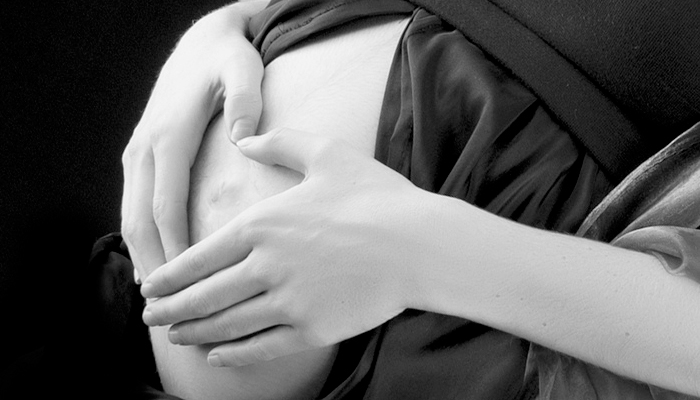
Maternity Wards in Low-Income Cities Are Discriminatorily Drug Testing Minority Moms
Patient confidentiality has always been a touchy subject in health care, especially when it comes to pregnant women and their newborns. However, physicians have been given the power to order drug tests if they believe expecting mothers have engaged in any type of intrauterine drug use (during pregnancy). When a mother has a history of drug use, or their newborns show clinical symptoms suggesting so, doctors typically suspect intrauterine drug exposure as the cause.
“The Supreme Court ruled that hospitals could not test pregnant women for drugs without their consent, and must turn the results over to the police.”
They ruled that a warrant is needed if the mother does not consent to the drug tests, citing the 4th Amendment, which bars unreasonable search and seizure. They place the power of determining whether the patients actually consent to these tests in the hands of lower courts. South Carolina has had a long history of dissenting opinions stemming from these lower district courts. In 1996, a 4th Circuit Court of Appeals ruled that women could still be tested under the “special needs” clause in the 4th Amendment. If those mothers, or their newborns, tested positive, they would be reported to the Department of Social Services rather than the police. Due to this policy, mothers have lost custody of their children and have been enlisted in a program known as “mommy probation,” which includes a year of drug tests, counseling, and parenting classes.
At first glance this may seem like a novel idea to prevent women from harming their fetuses through the use of hard drugs such as crack cocaine, methamphetamines, and heroine. However, physicians are turning tests in to CPS when mothers, or their children, test positive for marijuana as well. Not only is this process unjust, but the methods currently used by physicians to test for cannabis exposure in infants are unreliable as well. Non-pot-smoking parents have even lost custody of their children due to these faulty test methods.

The test doctors currently use is called the, “immunoassay drug test,” and it is often followed by a more targeted THC test to confirm the results. However, scientists at the University of Utah have found that these targeted tests have even higher rates of false-positive results with infants than with adults. The test has been known to show false-positives triggered by many different types of soaps and typical household products. Scientists found two components in particular that are responsible for these false positives: polyquaternium 11 and cocamidropropyl betaine. The two compounds are found in a number of seemingly innocent household items, such as Windex, Axe shower gel, Dial foaming hand soap, Crest toothpaste, and a number of baby shampoos. Less than 0.1 milliliters of either of these compounds in a urine sample was found to result in a false positive in the immunoassay tests. While they call the issue, “unresolved,” it is believed that more testing is required to explain what is causing these false positives, and that doctors should not rely on this mode of testing alone.
If we are truly concerned about the health and safety of newborns, we should be figuring out ways to test for alcohol and cigarette use by expecting mothers due to the fact that more than half of women age 15-44 drank while pregnant, and Fetal Alcohol Syndrome (FAS) is estimated to occur in 1% of all births in the US each year.
Regardless of whether the tests are faulty, physicians continue to use them, and Family Court attorneys say they see tons of these cases every year, typically against low-income and minority women. Private hospitals in rich neighborhoods rarely test new mothers for drugs, whereas hospitals serving primarily low-income moms make those tests routine and sometimes mandatory. “It’s absolutely discriminatory,” said Lynn Paltrow of the National Advocates for Pregnant Women. “This all comes out of the same history of racism, the drug war, and misinformation.”
Lenox Hill Hospital, in the Upper East Side of NYC, only tests mothers if they are obviously buzzed, said a spokeswoman from the hospital. Roughly 12% of the hospital’s patients are on Medicaid or uninsured, compared to the 73% at St. Barnabas Hospital in the impoverished section of the Bronx, who report a healthy handful of positive drug tests every month. “This is a high-risk population in this hospital,” said St. Barnabas spokesman Steve Clark. The hospital is private as well, but requires that all new mothers agree to take drug tests. If they refuse, their babies are tested instead. Deeming this population as “high-risk,” in and of itself, is extremely prejudiced.
Glarimar Cruz, a 25-year-old mother from the Bronx, was a victim of this unfair drug testing. She had her baby at the St. Barnabas hospital in March, where she was blindsided by a drug test that she ended up failing. While further test results came out negative, Child Services dug up an old complaint Cruz had filed about the father from two years prior. The complaint was for domestic abuse in front of their children, so the agency issued a protection order against the father. After refusing to move into a shelter, the agency filed a neglect petition against Cruz, resulting in a year of Mommy Probation. Although protective services dropped the case in October, Cruz stated, “I feel like they ruined my whole family… It’s a relief it’s over, but I feel emotionally scarred.”
“While there is no official record as to how many of these cases are seen each year… attorneys estimate that this number is between 100 and 200…”
Attorneys fighting these cases have begun to cite specific scientific findings that pot use possesses far less risk than cigarette or alcohol use, neither of which can be tested for. Emma Ketteringham of the Bronx Defenders, represented Miss Cruz in her case, claiming, “They take a urine test and act as if it can predict parenting ability. It’s doing more harm than good.” She stated that it is not very likely that you see these cases when dealing with privileged women in wealthy areas.
Although physicians are supposed to avoid discriminatory practices, it is clear that an overwhelming amount of women who are losing custody of their children, are either poor or minorities. In addition, there is no evidence supporting the fact that intrauterine drug use results in poor parenting. In fact, studies have shown that children who end up staying with their original parents turn out to have far better outcomes than those who are taken by Child Services.